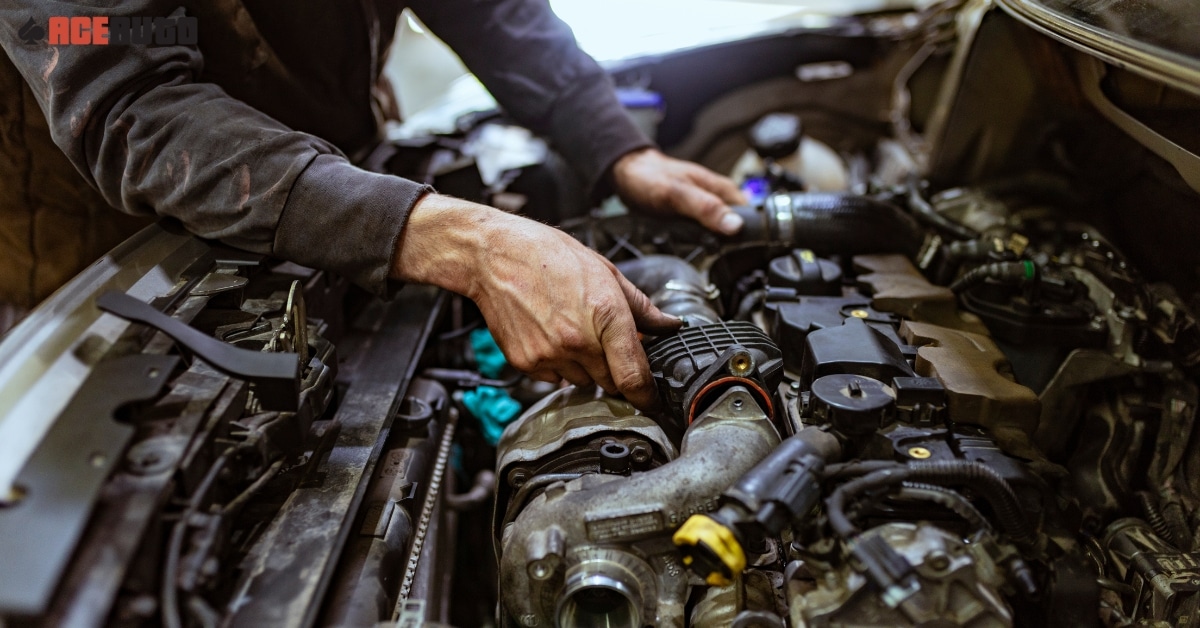All Categories
Featured

Your vehicle's engine is the heart of your car, and keeping it in top condition is essential for optimum efficiency and durability. Normal engine tune-ups are a wonderful way to preserve your auto's health and wellness, enhance gas performance, and avoid costly repair work in the future. Whether you're a cars and truck enthusiast or a person that just wishes to maintain their lorry running efficiently, these engine tune-up suggestions will certainly assist you obtain the most out of your auto.
- Change Flicker Plugs. Ignition system play a vital function in starting your engine and making sure smooth burning. Over time, ignition system can end up being dirty or worn, leading to misfires, decreased fuel effectiveness, and harsh idling.
Throughout an engine tune-up, evaluate and replace your ignition system if needed. A lot of cars require new ignition system every 30,000 to 100,000 miles, depending upon the kind. Consistently changing spark plugs ensures correct ignition and optimal engine efficiency.
- Check and Clean the Air Filter. The air filter prevents dust, dirt, and debris from entering your engine. A clogged up or filthy air filter restricts air flow, triggering your engine to work more challenging and burn even more fuel.
Inspect your air filter during a tune-up and replace it if it's unclean. In messy atmospheres or areas with hefty air pollution, you may need to alter the air filter a lot more often. A clean air filter can boost fuel efficiency and prolong the life of your engine.
- Inspect and Replace Belts and Tubes. Belts and hoses are essential for various engine features, such as powering the alternator, water pump, and air conditioning system. In time, these components can split, fray, or put on out, possibly bring about failures.
During a tune-up, check belts and tubes for indicators of wear and replace them if needed. Changing these parts proactively can save you from pricey repair work and avoid unanticipated failings.
- Tidy the Gas System. Your fuel system, including the fuel injectors and fuel lines, can gather dirt and carbon deposits in time, minimizing engine efficiency. Cleaning the fuel system during a tune-up helps enhance efficiency and fuel economy.
You can make use of a gas system cleaner or have a specialist mechanic do an extra comprehensive cleansing. This action is specifically vital for older lorries or automobiles that frequently drive in stop-and-go web traffic.
- Inspect the Battery and Charging System. A healthy battery is necessary for starting your engine and powering electrical parts. Throughout a tune-up, inspect the battery terminals for corrosion and guarantee the links are limited.
Check the battery's voltage and change it if it reveals signs of weak point. Additionally, have the alternator and charging system tested to guarantee your battery stays billed during procedure.
- Modification the Engine Oil and Oil Filter. Oil adjustments are a fundamental component of engine upkeep. Engine oil lubes moving parts, lowers rubbing, and aids manage engine temperature. Gradually, oil ends up being contaminated and sheds its efficiency.
During a tune-up, replace the engine oil and oil filter to maintain your engine running smoothly. Follow your automobile's producer suggestions for oil type and modification intervals.
- Examine the Air Conditioning System. The air conditioning system prevents your engine from overheating. In time, coolant can weaken or come to be infected, lowering its efficiency.
Check the coolant level and condition during a tune-up, and flush and replace it if required. Examine the radiator, water pump, and pipes for leakages or damages. A well-kept cooling system aids your engine operate at the right temperature and stops getting too hot.
- Check the Ignition System. A malfunctioning ignition system can cause starting issues and minimized engine performance. During a tune-up, examine the ignition coils, supplier cap, and blades (if relevant) Replace any kind of components that reveal indicators of wear or damage to guarantee smooth and trusted engine procedure.
- Pay Attention for Uncommon Noises. During a tune-up, seize the day to pay attention for any uncommon engine noises, such as knocking, ticking, or hissing. These noises can show underlying problems, such as valve issues, loose components, or exhaust leaks. Resolving these issues early can stop much more considerable damages.
- Usage Quality Components and Fluids. When executing an engine tune-up, always make use of top notch parts and fluids that satisfy your automobile supplier's specifications. Low-cost or inaccurate parts can endanger your engine's performance and integrity.
Final Thought: A Well-Tuned Engine is Secret to Long life. Routine engine tune-ups are necessary for keeping your auto's performance, performance, and reliability. By replacing used parts, cleaning essential systems, and attending to prospective concerns, you can keep your engine running smoothly for many years to find. Whether you're doing it on your own or counting on a trusted technician, buying tune-ups is a clever way to secure your car and enjoy a much safer, smoother ride.
Latest Posts
Seamless Light Weight Aluminum Gutters: The Smart Choice for Your Home
Shield Your Home with Quality Residential Roof Covering
How Chicago Drivers Prefer Montclare Auto Repair for Reliable Service and Great Savings
More
Latest Posts
Seamless Light Weight Aluminum Gutters: The Smart Choice for Your Home
Shield Your Home with Quality Residential Roof Covering
How Chicago Drivers Prefer Montclare Auto Repair for Reliable Service and Great Savings
